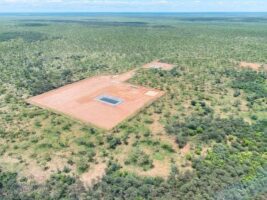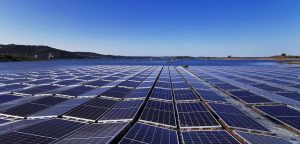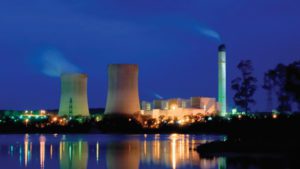An international team of research scientists have found there has been a substantial underreporting of methane emissions, a potent greenhouse gas, and annual methane emissions may be up to 40 per cent higher than first thought.
In new research published in the scientific journal Nature, scientists found that many of the world’s greenhouse gas records had used an incorrect estimate of pre-industrial methane emissions, leading to the underreporting.
The scientific review found that methane emissions prior to the industrial revolution were substantially lower, as much as one-tenth lower, than originally thought.
These pre-industrial emissions were produced by ‘biogenic’ sources, such as from the decomposition of organic matter such as plants, and geological sources which include seeps and volcanic activity.
“This result indicates that anthropogenic fossil methane emissions are underestimated by about 38 to 58 [million tonnes] methane per year, or about 25 to 40 per cent of recent estimates,” the research paper says.
“Our record highlights the human impact on the atmosphere and climate, provides a firm target for inventories of the global methane budget, and will help to inform strategies for targeted emission reductions.”
These findings suggest that methane emissions attributable to human activity, created primarily from the extraction of fossil fuels, is substantially higher than first thought and have grown dramatically since the 1750s with the increasing use of coal, gas and oil.
And it puts into question the suitability of Australia’s new push to produce yet more gas at Narrabri, Burrup in Western Australia and in the Northern Territory.
Gas is not a transition fuel – it has a huge greenhouse gas footprint, as this report shows. Leaks of methane occur all along the supply chain for gas and liquefied natural gas,” says Bruce Robertson, from the Institute of Energy, Economics and Financial Analysis (IEEFA).
“These leaks make gas a potent greenhouse gas contributor. The gas industry can no longer hide behind burping cows. The gas industry is the cause of mounting methane emissions.”
The international research team, which included scientists from Australia’s CSIRO and Australian Nuclear Science and Technology Organisation (ANSTO), undertook a review of estimates of pre-industrial methane emissions.
Researchers used ice-core samples to measure the level of methane gas in the atmosphere going back to before pre-industrial period to estimate the amount of naturally caused methane gas emissions.
The scientists are able to distinguish these “natural” sources of methane from methane produced from fossil fuels, due to the presence of particular methane isotopes that are lacking in fossil fuel methane.
Citing the example of the United States, the researchers estimated that emissions from the oil and natural gas industries were underreported by as much as 60 per cent by groups that include the US Environmental Protection Agency.
“Our results imply that anthropogenic fossil CH4 emissions now account for about 30% of the global methane source and for nearly half of anthropogenic emissions, highlighting the critical role of emission reductions in mitigating climate change.”
Methane gas is a potent greenhouse gas and has a much stronger contribution to global warming compared to carbon dioxide, particularly in the short-term.
“Gas is primarily made up of methane, a greenhouse gas that is over 80 times more potent than carbon dioxide in the short-term. Methane is released during all stages of the gas lifecycle – from exploration to consumption,” climate scientist and member of the Climate Council professor Will Steffen said.
“Plans to expand gas are dangerous and pose unnecessary risks in a country like Australia, which is extremely vulnerable to the risks of climate change and perfectly placed to lead the global renewables boom.”
As methane is the main component of natural gas, even small amounts of leakage or escaped natural gas can have a significant impact on global greenhouse gas emissions, as has been reflected in growing Australian emissions due to a massive ramp-up of gas production in recent years.
Energy analysts from IEEFA say the research findings raised serious questions over the suitability of natural gas, which primarily consists of methane, as a “lower emissions” energy source.
“If we want to reduce greenhouse gas emissions we cannot afford to open up new high emitting projects such as Santos’ Narrabri gas project, Woodside’s Burrup Hub and the Northern Territory. Far from looking to reduce emissions, these projects are accelerating them,” Robertson says.
Australia’s greenhouse gas emissions have been pushed higher in recent years due to a significant expansion in natural gas production.
Australian fugitive emissions from gas extraction, methane lost to the atmosphere due to leaks in the production, processing, transport of natural gas, have more than doubled since 2013.
Federal energy minister Angus Taylor has argued that these increases are of no concern, as the gas was being used to reduce emissions in other countries. A claim that is now even more questionable following the latest research findings.
The Morrison government recently struck a deal with the NSW state government to expand the state’s natural gas production, in return for providing funding towards the establishment of the State’s first renewable energy zone.
Prime minister Morrison claimed, in a speech to the National Press Club last month that there was no viable path to reducing emissions without the increased use of gas.









